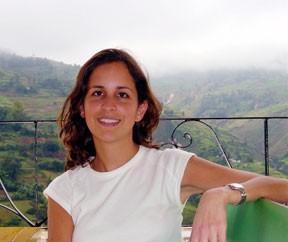In recent weeks, violent uprising and political discord have torn apart the small country of Haiti. Many people at the University have seen national news reports and footage of the conflict. But one University alumna was in the country and experienced the situation first-hand.
Monica Martinez, a 1997 LSU graduate and former Reveille writer, now works with the U.S. Embassy. Her husband Daniel is a foreign service officer with the U.S. State Department, working to advocate foreign policy, protect American citizens and promote American business interests in Haiti. Both had been living in the Haitian capital of Port-au-Prince and working in the country for eight months when the crisis broke out.
According to Associated Press reports, the conflict had been brewing since the 2000 election of Haitian president Jean-Bertrand Aristide. Since his election, many have accused Aristide of breaking promises to help the poor, allowing corruption and drug trafficking in the country and masterminding attacks on opponents. Aristide continually has denied all allegations.
In early February, the situation reached a boiling point when rebels opposed to Aristide and his policies began leading a massive uprising against the president.
As the rebels attacked buildings and Haitian citizens, eventually making their way to the national police headquarters, government forces counterattacked, creating violent outbursts throughout the country.
In the midst of the chaos, Aristide fled Haiti and sought refuge in the Central African Republic, under pressure from rebels, political opponents, the United States and France.
Hundreds of people have been killed in the attacks, and many others have attempted to flee the country.
In an e-mail, Martinez said she and her husband were removed from Haiti by the Embassy on Feb. 24, before the situation became extremely critical. Although Martinez said she never felt her life was in danger, she did become frightened and worried at times.
“The Embassy did the best they could to steer us away from trouble spots, but it was unnerving to every now and then see riot police in full gear or to run into barricades,” Martinez said. “The rat-tat-tat of gunfire and the smell of burning tires were also overwhelming the last few days.”
Martinez said the most frightening situation came only a few days before Embassy officials evacuated her and her husband from the country, as she was being escorted home in a convoy with Embassy security personnel and U.S. armed forces.
“I thought a couple of times I was going to faint, particularly when the driver of the vehicle I was in motioned to me in the back seat and said, ‘It’s good you’re alone back there, so you can duck down if we come under fire,'” Martinez said. “Those are words I don’t ever want to hear again.”
Although the situation became frightening at times, Martinez said it also was thrilling.
“I know this sounds reckless, but from a personal perspective, the last two weeks we were in Haiti were also filled with excitement, a sense of danger, a sense of being trapped in an action movie,” Martinez said.
As the situation worsened, Martinez said she and her husband tried to assist innocent Haitians as much as possible.
“Even though our house is locked up, we continued our maid’s and gardener’s employment, so they could at least continue receiving some money,” Martinez said. “We also gave away as much food as we could to them and their families, as we knew food shortages were around the corner.”
In addition, Martinez said she and her husband told their employees and Embassy guards assigned to their house for protection to use the home as a safe haven if they felt threatened or scared in their own homes.
Despite the measures Martinez and her husband took to ensure the safety of others, Martinez said she felt she could have done more.
“I feel I did not do enough,” she said. “I feel I could — and should — have done much more, but we only had a few hours to organize our departure, and we ourselves were facing an uncertain future.”
The couple now is residing in Washington, D.C. Martinez said her husband may have to return to Haiti in the near future, but she is unsure if she will be allowed to return with him.
Although Martinez and her husband faced an unforeseen situation when in Haiti, she said they have no regrets about their time there.
“Despite the country’s image and reputation, we really enjoyed our time there,” Martinez said. “We both hope we will be able to go back soon and pick up our lives where we left them.”
Close to Home
March 16, 2004

Close to Home



